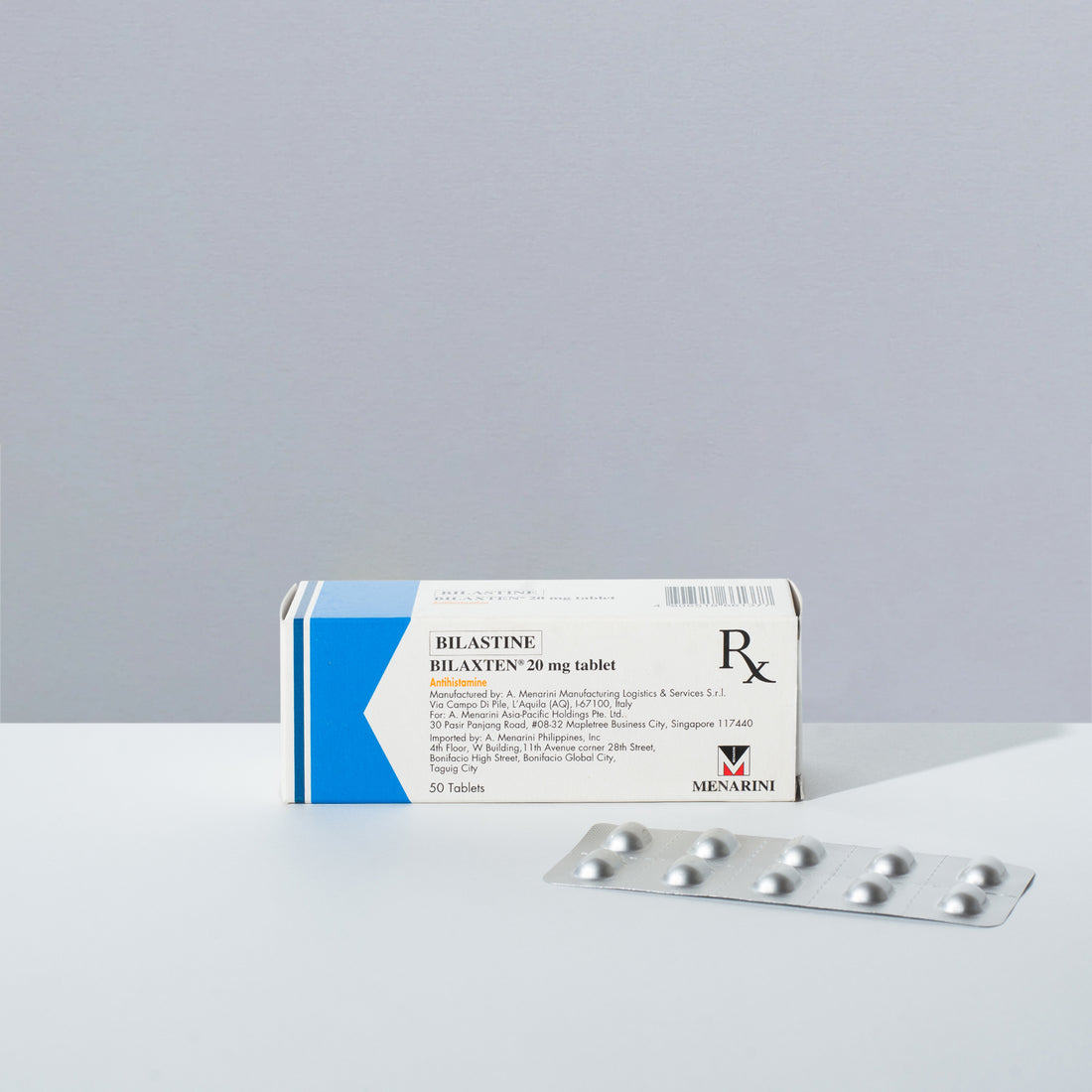Acne often necessitates the use of topical treatments that can lead to side effects like acne purging, irritation (irritant contact dermatitis), and allergic reaction (allergic contact dermatitis). Irritation and allergic reaction can alter the evolution of acne, leading patients to self-diagnose acne as conditions that may mimic acne like fungal acne or Malassezia folliculitis/pityrosporum folliculitis, rosacea, and perioral dermatitis.

Purging, irritation, and allergic reactions in acne can be difficult to identify causing delay in timely resolution and affecting the overall effectiveness of the acne treatment.
Bilastine is a second-generation antihistamine that is virtually marketed in over 100 countries worldwide, indicating its potentially vast user base. It has fewer side effects compared to other antihistamines and this aligns with health-conscious individuals seeking effective yet gentle allergy relief
What is Bilastine?
Bilastine belongs to the second generation of antihistamines, known for fewer side effects like drowsiness compared to traditional antihistamines. Bilastine primarily targets peripheral H1 receptors, minimizing central nervous system (CNS) effects and potentially appealing to those concerned about drowsiness, CNS-mediated cardiac risk, or cognitive impairment with other antihistamines. Bilastine exhibits fewer drug interactions compared to some other antihistamines.
Both cetirizine and bilastine have minimal cardiac risks compared to first-generation antihistamines. Bilastine's peripheral selectivity further reduces the risk of cardiac side effects like QT prolongation, especially for individuals with pre-existing heart conditions or taking medications that can affect heart rhythm.
Bilastine offers once-daily dosing, while Cetirizine might require twice-daily administration, potentially reducing compliance for some users. Bilastine has minimal drug interactions, making it suitable for individuals taking various medications. Cetirizine has more potential interactions, requiring careful consideration.

For health-conscious individuals, Bilastine often emerges as the preferred choice due to its lower risk of drowsiness, minimized cardiac concerns, once-daily dosing convenience, and reduced drug interaction potential.
Bilastine's Role in Acne Management

Skin allergic reaction and irritation from acne skincare is often accompanied by itch sensation. This leads to scratching of the affected areas especially when the patient is asleep. Scratching can worsen inflammation, acne, and can lead to scarring. Bilastine's antihistamine properties may alleviate itching and prevent scratching-related complication. Bilastine may indirectly impact acne through it's anti-inflammatory effects. Bilastine effectively blocks histamine, a key player in inflammatory responses. By hindering histamine's action, Bilastine might indirectly reduce skin inflammation associated with allergic reactions which may exacerbate acne and renders treatment less effective. Mast cells release inflammatory mediators like histamine. Studies suggest that Bilastine can affect mast cells, potentially preventing the release of these inflammatory chemicals and reducing skin inflammation. Some in-vitro research indicates Bilastine possesses antioxidant properties. This could potentially contribute to reducing skin inflammation by reducing oxidative stress on the skin.
An analysis using reverse transcriptase-PCR and immunofluorescence on the SZ95 immortalized sebocyte cell (skin oil gland cell) line demonstrated the existence of the histamine-1 receptor (H-1 receptor). This finding suggests that both histamines and their inhibitors, antihistamines, might directly influence the functioning of sebaceous cells. This could explain the finding in an in-vitro study where diphenhydramine (DPH) was able to decrease sebum production, excess of which is a primary cause of acne development. Also, recent studies suggest combining antihistamines with Isotretinoin might have synergistic benefits. The antihistamine's anti-inflammatory and potential sebum-reducing properties could complement Isotretinoin's action, potentially leading to faster and more effective acne clearance. Studies also indicate using antihistamines with Isotretinoin might decrease some of the Isotretinoin's common side effects like dry skin, itching, and acne purging. In light of these, Dr. Mike often considers prescribing acne patients experiencing allergic reactions and acne purging with antihistamines if applicable. He prefers Bilastine over other known antihistamines because of its safety profile.
Does Bilastine have side effects?

Common side effects of Bilastine are headache, dizziness, and fatigue. While less likely than with other antihistamines, some individuals may still experience drowsiness, especially at higher doses. It's crucial to avoid driving or operating machinery if you experience this side effect. Side effects such as headache in an important consideration in acne patients taking Isotretinoin since this side effect can also be caused by the former. Side effects of Bilastine are usually noted with higher dosages and prolonged administration of the said drug. Dr. Mike usually prescribes Bilastine to patients at standard 20mg dose daily at a limited duration and side effects in this setting are unusual.
Bilaxten: A Trusted Brand of Bilastine

Most Dermatologists prefer Bilaxten as a Bilastine brand because of its effectivity, good track record, safety profile, and his experience in prescribing it in his patients. It is also preferred by most of his fellow board certified dermatologists in the Philippines and is manufactured by a reputable pharmaceutical company Menarini.
Beyond Bilastine: Our Skincare Solutions
DMD Skin Sciences revolutionizes acne treatment by providing potential acne cure through expert-led online acne consultation and personalized combination of innovative skincare products and powerful oral acne treatment. Our dedicated team of health professionals, armed with in-depth dermatological knowledge, is committed to providing personalized solutions tailored to your unique skin needs. We believe every skin story is different, which is why our approach is centered around understanding your individual journey and offering targeted, effective treatments. From custom product recommendations to supportive follow-up care, we're here to guide you every step of the way towards healthier, clearer, stronger skin. Experience the fusion of expertise and personalized care with DMD Skin Sciences, your partner in achieving the radiant skin you deserve.

